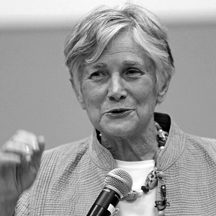
Jacob Goodwin writes in The Progressive that the best solution to the teacher shortage is to strengthen teacher unions, assuring teachers of working conditions, job security, and benefits at a time when the teaching profession and public schools are under attack by rightwing nuts.
Goodwin writes:
In February, the National Education Association conducted a survey of its three million members and found that 90 percent of respondents felt that burnout was a “serious problem,” while more than half of members reported thinking about leaving the profession “earlier than planned.”
This immediate shortage of teachers is paired with long-term concerns, with the U.S. Bureau of Labor Statistics predicting that there will be an 8 percent increase in the number of high school teachers that are needed by 2030. But more immediately, the current teacher shortage is the product of an orchestrated attack on public spaces that, unfortunately, gained momentum during the COVID-19 pandemic.
I teach social studies to six graders at a public school in New Hampshire, which in July 2021 joined the ranks of at least five other states that have restricted classroom conversations about race and gender. Despite what their proponents claim, these laws are clear political ploys designed with the express purpose of stopping honest conversations about history in schools by intimidating teachers….
Teachers need to come together to revitalize associations from the ground up and push back on attacks on our public schools. Local teachers can find power by volunteering to participate in union actions and strengthening relationships across district boundaries. Educators who rise to this challenge will be following the work of generations past who fought to establish labor rights.
After all, unions are an iteration of the long American tradition of citizens coming together for a common civic purpose. As an essential part of each community, union members must demand democratic reforms internally as well. Challenging existing union leadership leads to increased ferment and dialogue within the union. The best ideas often bubble to the surface in spaces that embrace purposeful debate.
Unions also help to institutionalize civic norms and practices. To be leaders in the broader community, unions must demand democratic reforms internally. The practice of openness serves as a buttress against organizational rigor mortis. Creating an internal culture of openness and support will help empower members of diverse backgrounds and experiences and act as a safeguard against cliques and narrowness. This can be reinforced through adopting term limits for officers and establishing leadership development programs that increase the capacity of the next generation of labor leaders and local stewards.
Please open the link and read the rest of this excellent article.
* This article was originally published here
* This article was originally published here







0 comments:
Post a Comment